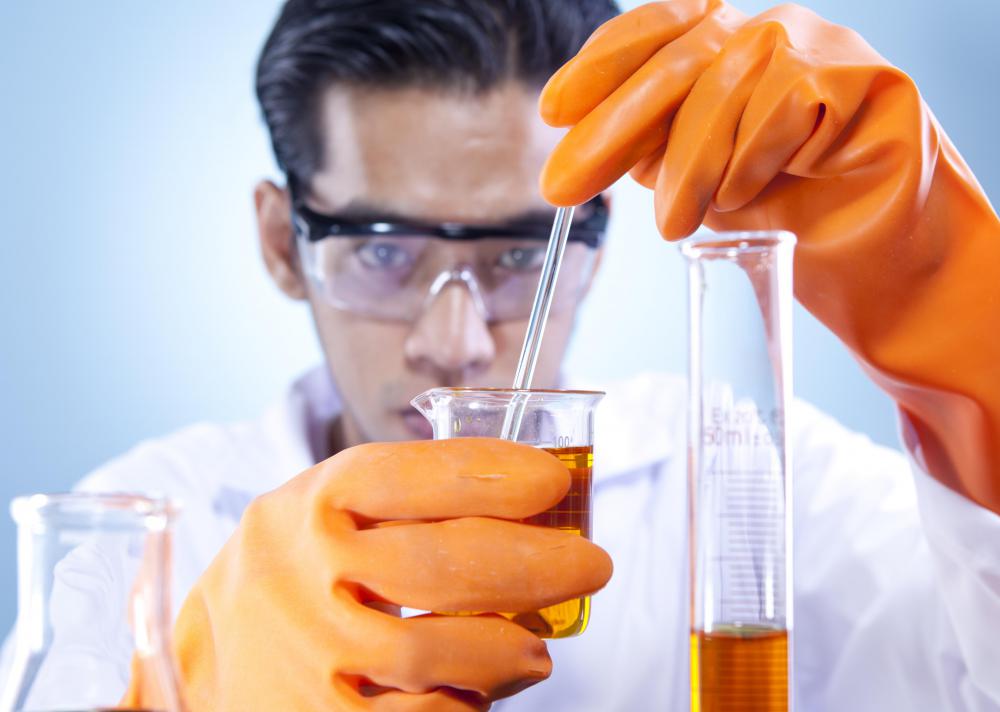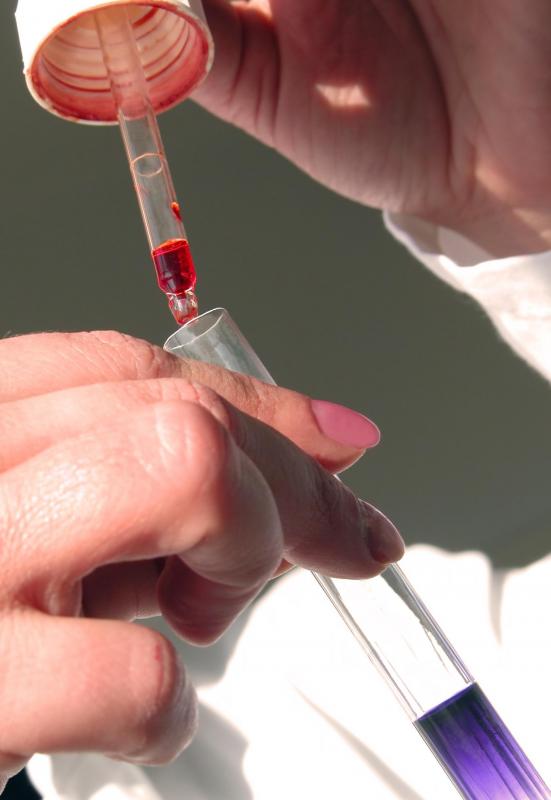At PracticalAdultInsights, we're committed to delivering accurate, trustworthy information. Our expert-authored content is rigorously fact-checked and sourced from credible authorities. Discover how we uphold the highest standards in providing you with reliable knowledge.
What Does a Physical Chemist Do?
A physical chemist is a scientist who studies physical chemistry, a subfield of chemistry that focuses on examining chemical phenomena within physical laws. Such chemists tend to conduct research aimed at discovering the physical mechanisms and reasons behind chemical phenomena, such as reactions and energy distribution. Methods in physical chemistry are applied to many different areas of chemistry, including thermodynamics, chemical kinetics, the relationship between intermolecular forces and physical characteristics, and electrical conductivity. A physical chemist can find work in a variety of areas, including research, education, and industry. In general, an advanced graduate degree is necessary to advance in any of these areas.
There are two different but closely related levels at which a physical chemist can study chemical phenomena: at the macroscopic level, which tends to focus on the emergent properties of large groups of molecules, or at the molecular level, which focuses on how individual molecules behave and how small groups of molecules interact with each other. A common goal in physical chemistry is to explain the relationships between molecular characteristics and macroscopic properties. Surface tension provides a good example of this — some insects, for example, are able to walk on the surface of water because of the cohesive properties of water molecules.

Physical chemistry is divided into many different subfields, but the most commonly studied are thermodynamics, quantum mechanics, and chemical kinetics. A physical chemist studying thermodynamics is interested in the movement and exchange of energy in chemical phenomena, particularly chemical reactions. Quantum mechanics encompasses the study of the structure of atoms and molecules, and can provide insight into why certain reactions occur as they do. A physical chemist interested in studying and manipulating the rates of chemical reactions will likely study chemical kinetics. It is unusual for an individual to study only one of these areas to the exclusion of all others, as there is a great deal of overlap between different subfields in chemistry.

Many different organizations hire skilled physical chemists. These professionals can find both teaching and research work at universities or research institutes, for instance. Jobs are also often available for physical chemists in industry, as companies that profit from chemical processes are constantly looking for ways to optimize their processes. Many government and military research institutions also hire these types of scientists. A physical chemist may work on any of a variety of different types of projects, including efficient energy, thermodynamically stable computer parts, and accelerating industrial chemical processes.
AS FEATURED ON:
AS FEATURED ON:














Discuss this Article
Post your comments